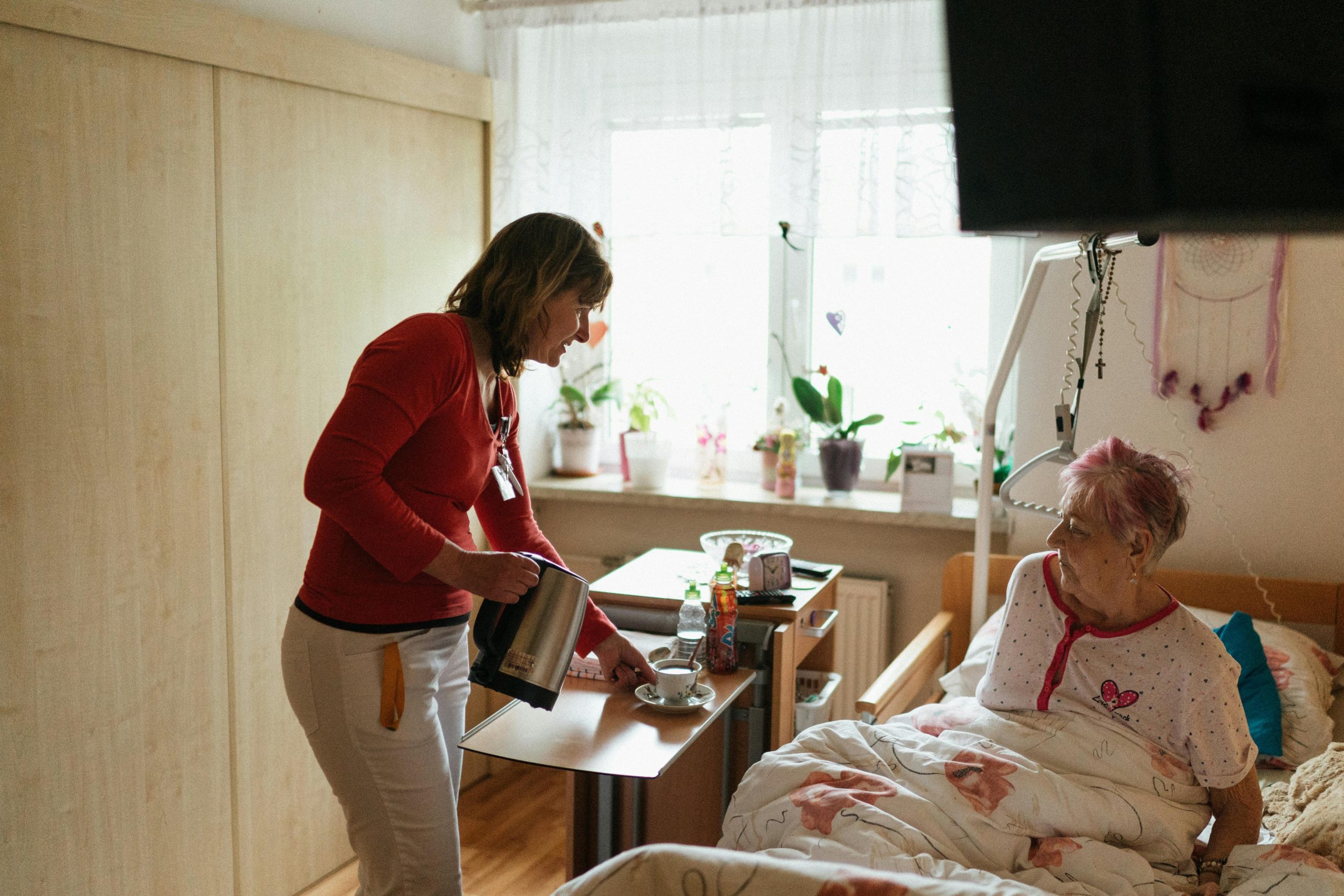Disclaimer: This website provides health information for educational purposes only and is not a substitute for professional medical advice, diagnosis, or treatment. Always seek the guidance of a qualified healthcare provider with any questions you may have.
- Recognize signs of caregiver burnout, like fatigue and irritability, for early intervention.
- Seek support from support groups, family, and professional care providers.
- Prioritize self-care by setting boundaries and making time for personal needs.
- Manage stress through relaxation techniques and taking regular breaks from caregiving duties.
- Build a support network by connecting with other caregivers and communicating openly with family and friends.
Caring for a loved one can be a deeply rewarding experience, but it also comes with its challenges. Whether you’re caring for an aging parent, a spouse, or a disabled family member, the responsibilities of caregiving can sometimes lead to burnout. Caregiver burnout is a state of physical, emotional, and mental exhaustion that can occur when caregivers don’t get the support they need. However, with the right strategies in place, caregivers can prevent burnout and continue to provide quality care for their loved ones. This article will explore some of the best tips to avoid caregiver burnout and ensure both you and your loved one thrive.

1. Understanding Caregiver Burnout
Recognizing the Signs
The first step in preventing caregiver burnout is recognizing the signs. Caregiver burnout can manifest in various ways, including feelings of fatigue, irritability, and withdrawal from activities you once enjoyed. It’s essential to pay attention to these signs and address them before they escalate.
Seeking Support
One of the most effective ways to prevent caregiver burnout is by seeking support. This can come in many forms, such as joining a support group for caregivers, reaching out to friends and family members for help, or enlisting the services of a professional in-home hospice care provider. By sharing the responsibilities of caregiving with others, you can lighten your load and reduce the risk of burnout.
2. Practicing Self-Care
Prioritizing Your Needs
Many caregivers prioritize the needs of their loved ones over their own. However, neglecting your needs can burn you out. Make sure to carve out time for yourself each day, whether it’s for exercise, hobbies, or simply relaxation. Remember, taking care of yourself is just as important as taking care of your loved one.
Setting Boundaries
Setting boundaries is crucial for preventing caregiver burnout. Know your limits, and don’t be afraid to say no to additional responsibilities if you’re feeling overwhelmed. Communicate your needs to your loved one and other family members, and don’t be afraid to ask for help when you need it.
3. Managing Stress
Practicing Stress-Relief Techniques
Managing stress is key to preventing burnout. Incorporate stress-relief techniques into your daily routine, such as deep breathing exercises, meditation, or yoga. These practices can help you stay calm and centered, even in the face of challenging caregiving situations.
Taking Breaks
It’s essential to take frequent breaks from caregiving to relax and rejuvenate. Whether it’s a short walk outside, a coffee date with a friend, or a weekend getaway, you want to spend some time away from your responsibilities as a caregiver to avoid burnout and allow you to return to your role feeling refreshed.
3. Seeking Professional Help
Utilizing Respite Care Services
Respite care services offer temporary relief for caregivers by providing professional assistance with caregiving duties. Whether it’s for a few hours a week or an extended period, respite care allows you to rest and recharge while ensuring your loved one receives the care they need.
Considering Counseling
Caregiving can be emotionally taxing, and it’s okay to seek professional help if you’re struggling to cope. Counseling can provide a safe space to express your feelings and develop coping strategies for managing caregiver stress. Many caregivers find counseling to be incredibly beneficial in preventing burnout and maintaining their emotional well-being.
4. Building a Support Network
Connecting with Other Caregivers
Connecting with other caregivers who understand what you’re going through can be incredibly validating and supportive. Joining a support group or participating in online forums can provide a sense of community and camaraderie, as well as valuable tips and resources for preventing burnout.

Communicating with Family and Friends
Open and honest communication with family and friends is essential for preventing caregiver burnout. Let your loved ones know how they can support you, whether it’s by helping with caregiving tasks, providing emotional support, or simply offering a listening ear. Building a strong support network can make all the difference in preventing burnout and thriving as a caregiver.
Caregiving is a demanding role that requires both physical and emotional strength. By implementing these tips and strategies, caregivers can prevent burnout and continue to provide compassionate care for their loved ones. Remember, it’s essential to prioritize self-care, seek support when needed, and recognize the signs of burnout before they escalate. Whether it’s through practicing stress-relief techniques, seeking professional help, or building a support network, caregivers have a range of resources at their disposal to help them navigate the challenges of caregiving with grace and resilience. By taking care of themselves, caregivers can ensure they have the energy and compassion to continue providing the best possible care for their loved ones.